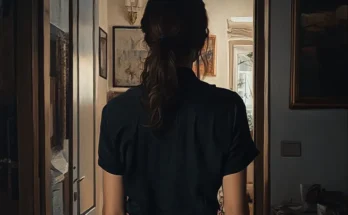After the funeral, Daniel walked through the nursing home room that still smelled faintly of lavender and lemon polish. The drawers were empty, the bed stripped, his grandmother’s framed photo facedown on the dresser to keep the glass from catching light. On the pillow sat the envelope the nurse had given him—thin, creased, and crudely sealed with a piece of tape. Inside were only a few dollar bills, curled at the edges like autumn leaves.
It stung. He had sat with Nana through her last winter, fed her soup, read the obituaries she pretended not to care about. He hadn’t expected riches, but not…this. He almost slid the bills back into the envelope, ready to tuck the whole thing in a box labeled “Later.”
Then he noticed the writing.
Each bill had a tiny note in pencil along the margin.
On the first: “The day you learned to tie your shoes. You said, ‘I did it messy, but I did it.’” The date was from decades ago. Daniel pictured his kindergarten sneakers, tongues out like dogs, and Nana clapping so hard the neighbors peeked through their curtains.
The second: “For the summer you mowed Mr. Cruz’s yard for free when his leg was in a cast. You were so proud of the blisters.” Daniel remembered the heat, the ache in his palms, the lemonade Nana poured over too much ice.
Another bill: “When your mother left and you asked if anything stays. We baked bread. You learned how to knead, how to wait.” The pencil had dented the paper there, as if she’d pressed hard to hold back more words.
He spread the bills on the bare mattress. Each one marked a small courage he had forgotten: the school play where he spoke too softly but finished anyway; the apology he wrote to a friend after a cruel joke; the day he sold his guitar to cover rent and still found a melody by tapping on the windowsill. The last dollar carried only two words: “Bus fare.”
He turned the envelope over. In its corner, written in that same thin pencil, was an address: an old library downtown. Beneath it: “Go today.”
At the library’s circulation desk, he offered the envelope like a strange library card. The librarian smiled, as if she had been expecting him, and handed over a box no bigger than a loaf of bread. Inside were things he thought the years had swallowed: a newspaper clipping of his first-place science fair win, the seashell he’d given Nana after his only trip to the ocean, a graduation program with his name underlined three times, and a folded letter.
“Dear Danny,” it began, “I had no money to leave you. But I kept a ledger of your bravery. When pennies were short, I honored you with memory. When dollars came, I saved them as placeholders for days you couldn’t see were valuable. If you ever doubt your worth, read these bills like a map: they will take you back to yourself. Use the last one for bus fare to somewhere you have been promising to go.”
Daniel sat under the library’s tall windows until the light went soft. He took the final dollar and bought a bus ticket not to anywhere grand, but to the community college where he’d quit a semester shy of finishing. He stood on the cracked sidewalk and laughed at how plain the building looked, how unceremonious a threshold could be.
The envelope was almost empty now—only air and that lavender scent. He folded it carefully and slid it into his coat. Some inheritances buy a house; his bought a way back. He walked inside to ask about re-enrolling, the echo of his steps steadier than he remembered, as if somewhere an old woman were clapping, delighted by how he tied his laces—messy, still—but moving forward all the same.


